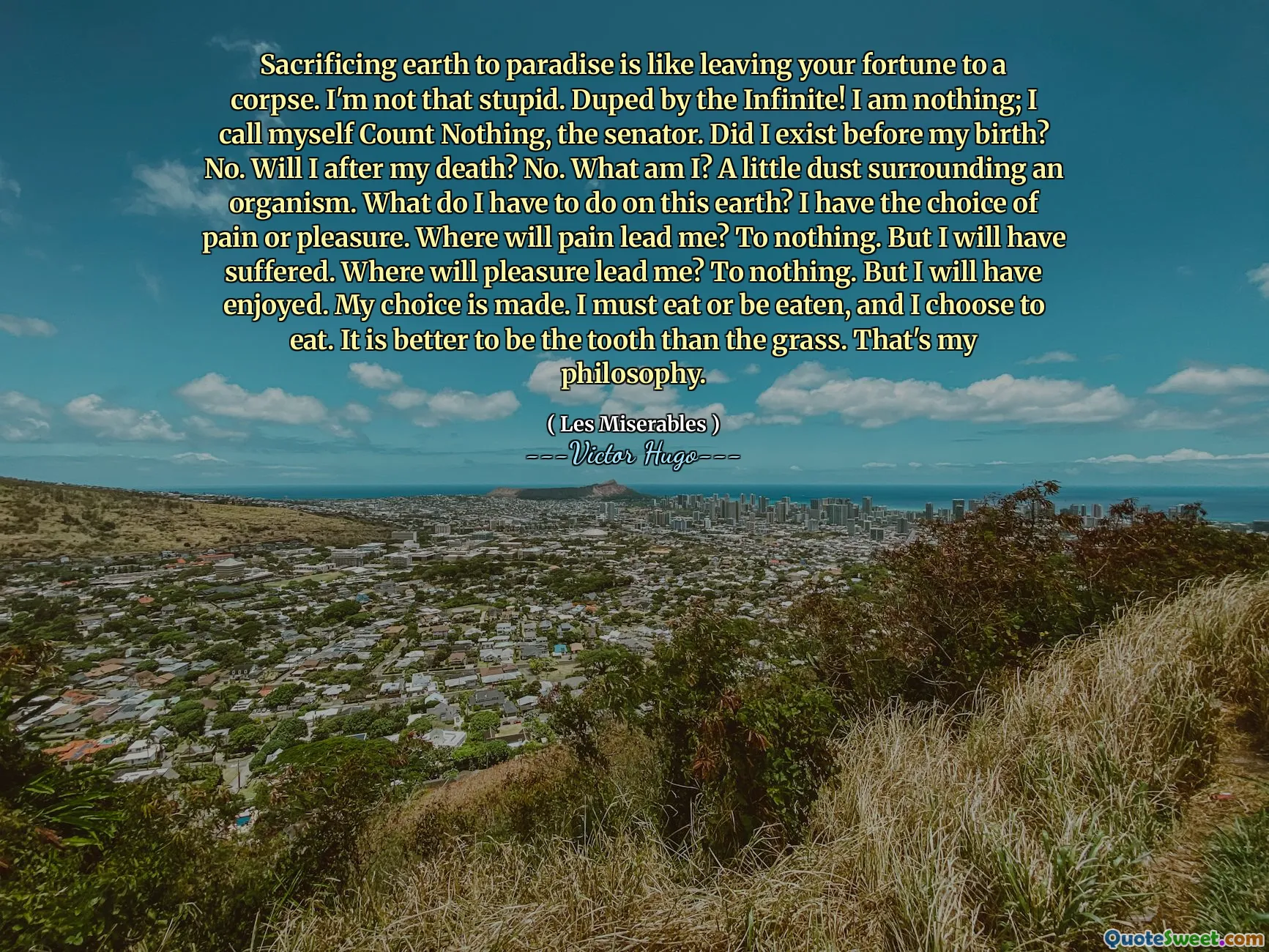
Sacrificing earth to paradise is like leaving your fortune to a corpse. I'm not that stupid. Duped by the Infinite! I am nothing; I call myself Count Nothing, the senator. Did I exist before my birth? No. Will I after my death? No. What am I? A little dust surrounding an organism. What do I have to do on this earth? I have the choice of pain or pleasure. Where will pain lead me? To nothing. But I will have suffered. Where will pleasure lead me? To nothing. But I will have enjoyed. My choice is made. I must eat or be eaten, and I choose to eat. It is better to be the tooth than the grass. That's my philosophy.
This quote delves into the profound acknowledgment of life's transient and ultimately insignificant nature in the grand cosmic scheme. It challenges the illusion of permanence and the falsehood of eternal rules, emphasizing the futility of lofty pursuits like paradise if they demand sacrifices that deny the reality of mortality and finiteness. The speaker adopts a nihilistic outlook, suggesting that individual existence is merely dust—an insignificant part of a vast organism—and that life's choices predominantly revolve around pain versus pleasure, both of which are ultimately fleeting. The metaphor of being the tooth rather than the grass eloquently captures a pragmatic and perhaps ruthless philosophy: engaging in the struggle for survival is better than passive existence or hope in illusion. It questions the value of moral or spiritual pursuits in a universe that offers no inherent purpose, framing existence as a simple biological instinct—eat or be eaten. This perspective encourages reflection on what truly matters in life: acknowledging reality, making pragmatic choices, and accepting life's mortality without illusions. It confronts the reader with the raw truth of human existence, prompting a shift from idealism toward realism, and perhaps an understanding that the only meaningful act is to participate authentically in the struggle of life.






